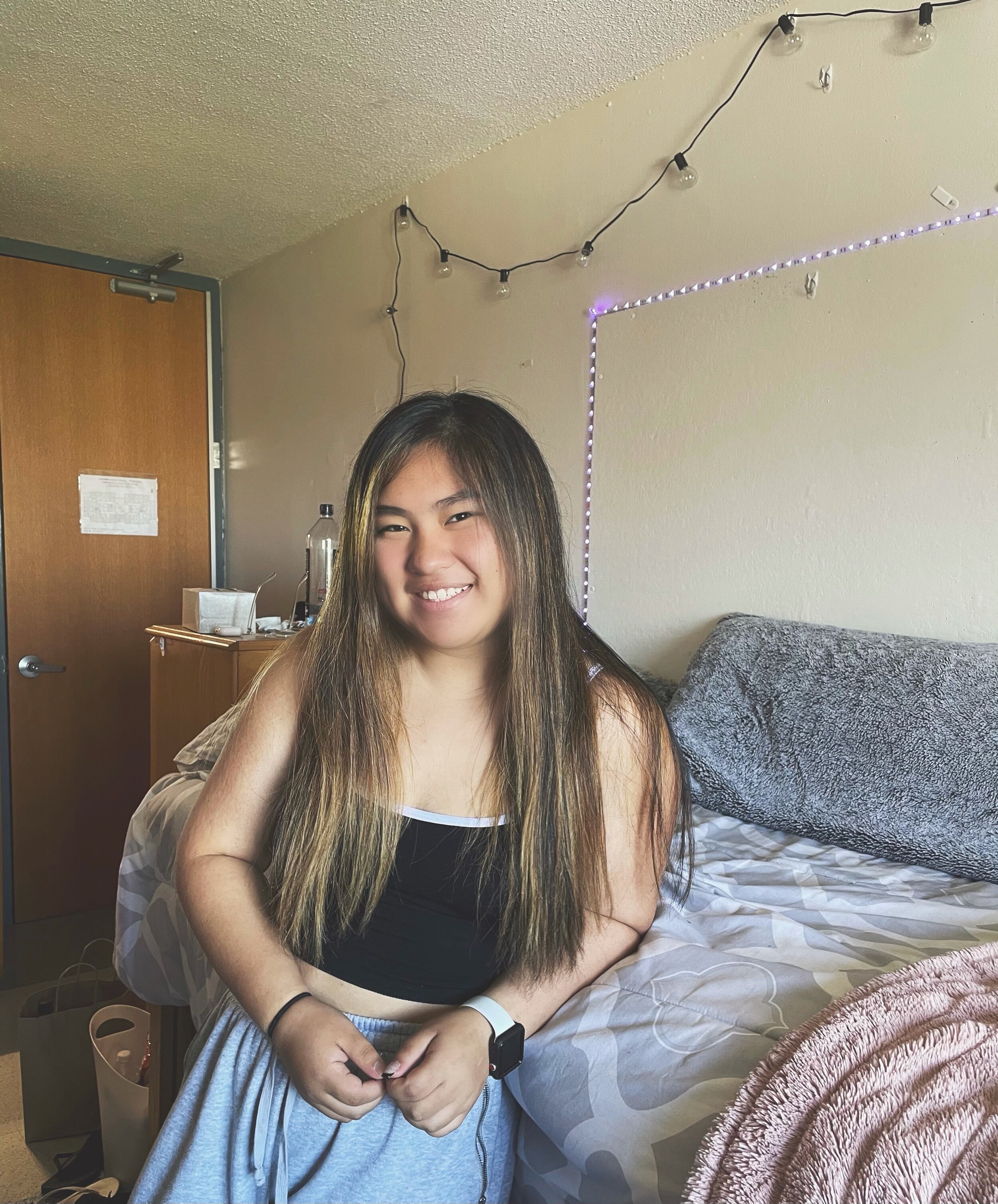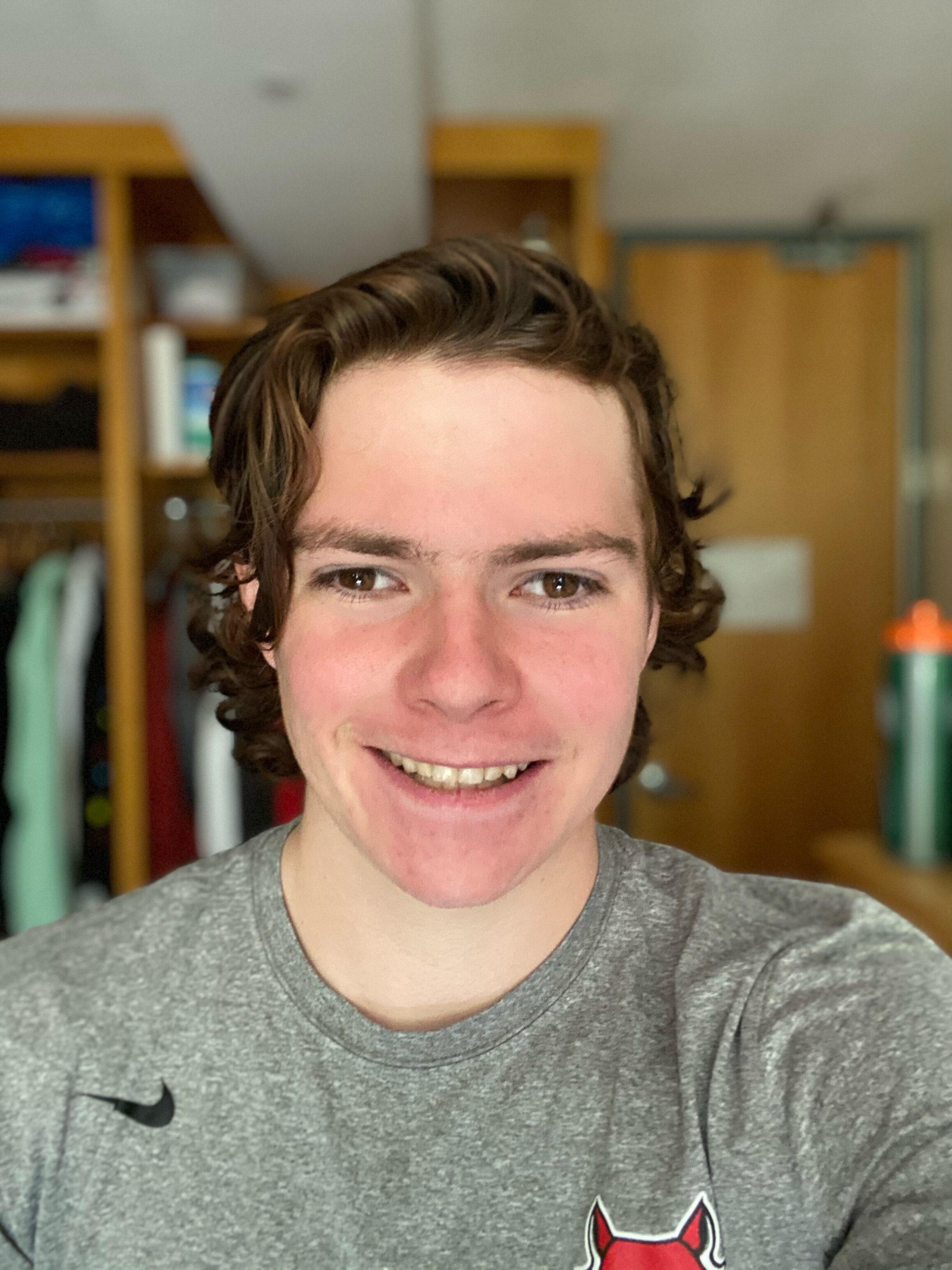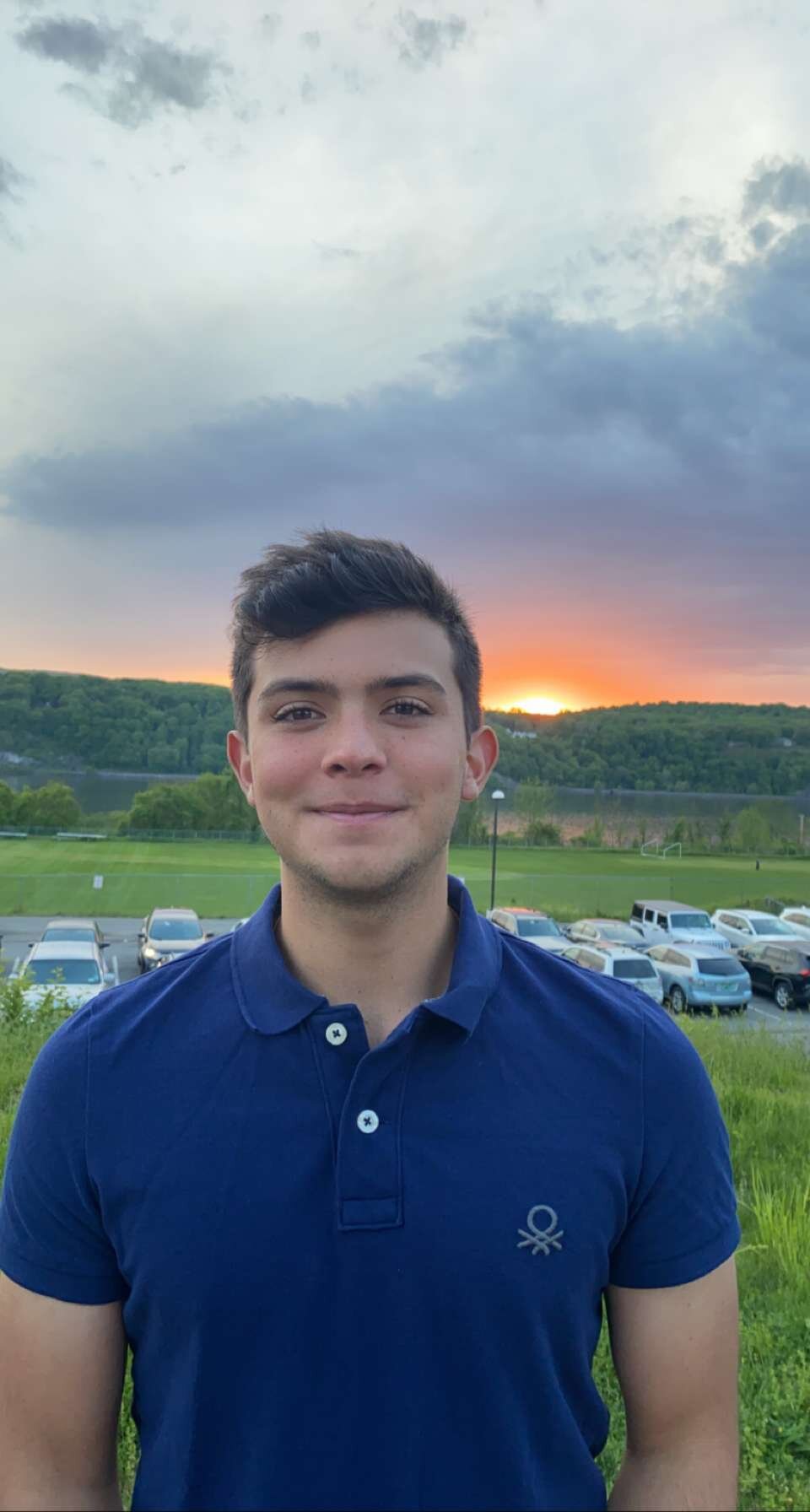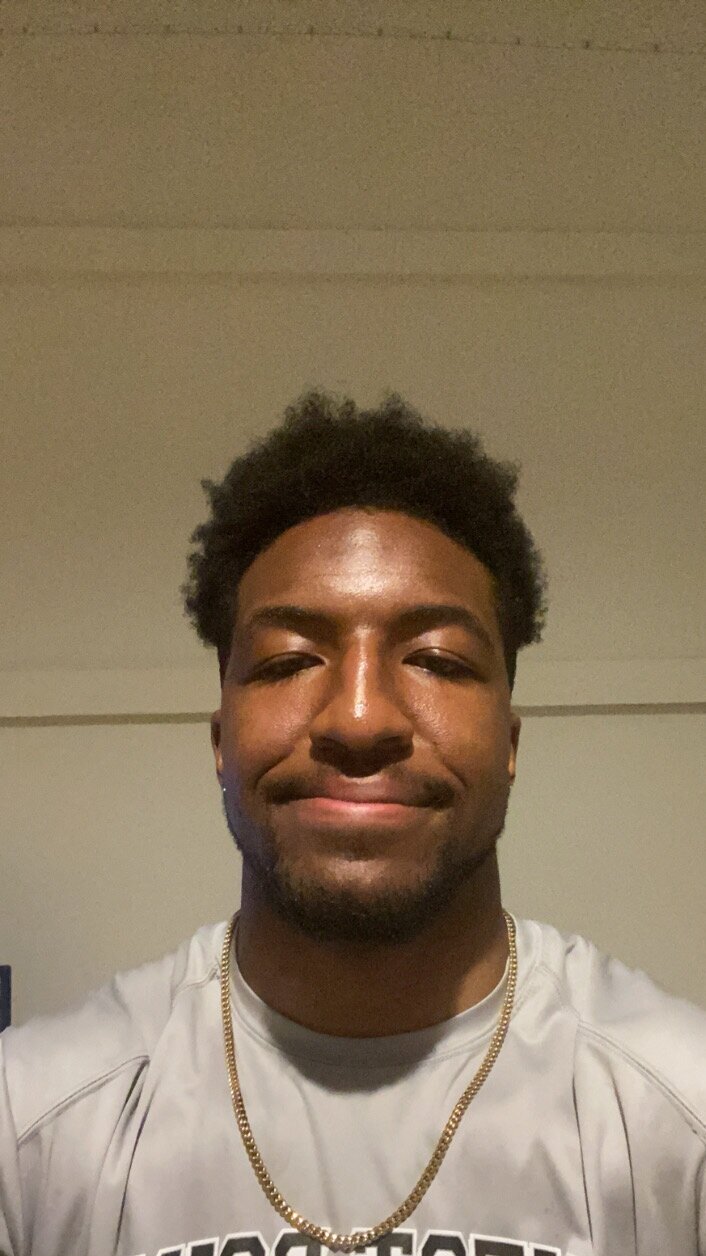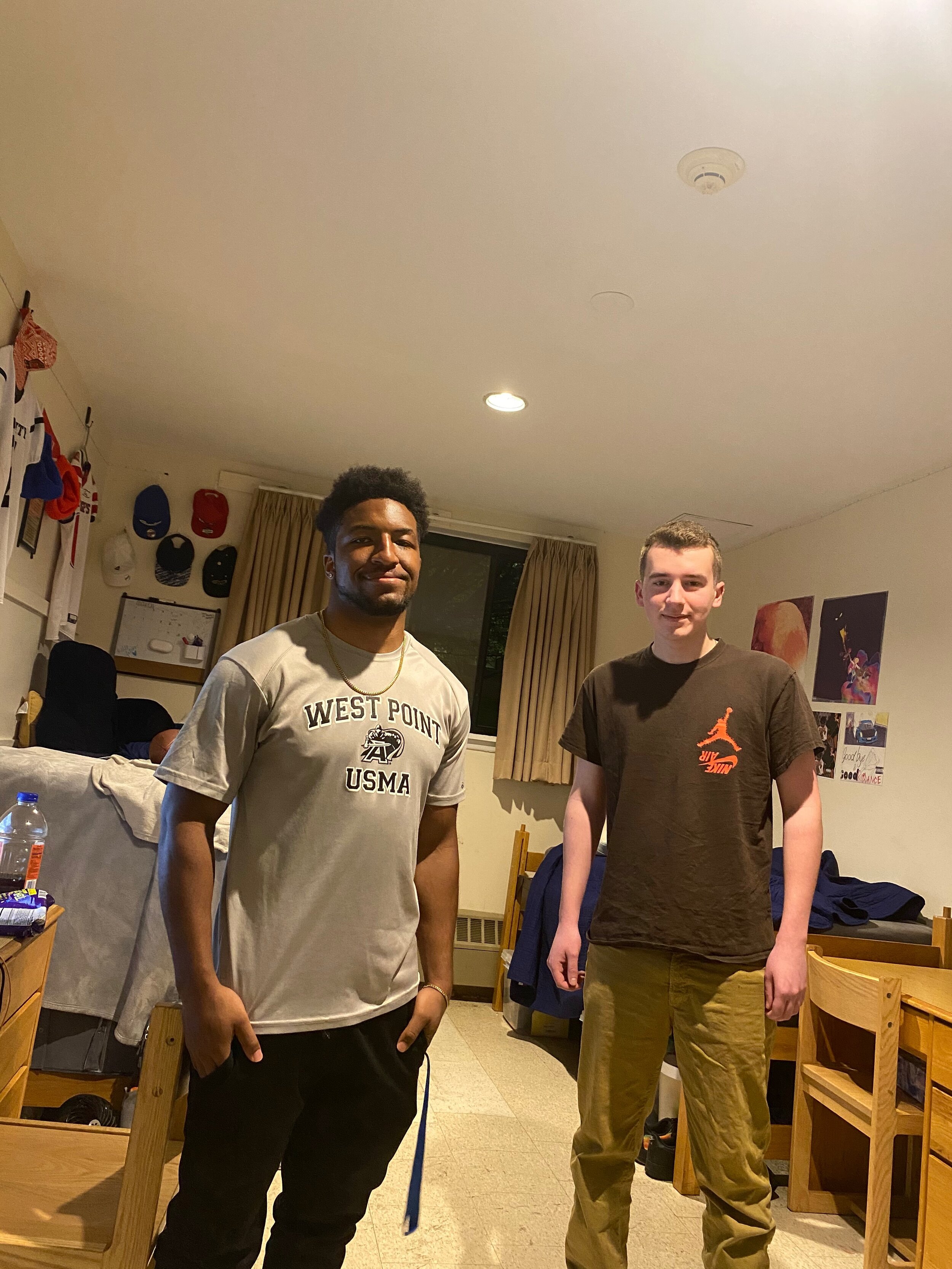The COVID Class
The Circle Followed Four Freshmen Throughout the Semester, Revealing the Ups and Downs of College During COVID
While Marist’s Class of 2020 kissed their college experience goodbye from their childhood living rooms, another Class of 2020 stuffed prom dresses in backs of closets, received diplomas at drive-through graduation ceremonies and prepared to start college under circumstances not illuminated in any guidebook.
Meet the COVID class.
The Circle followed four freshmen throughout the course of the spring semester. These first-year students made themselves available for multiple interviews and provided peeks inside their daily lives, academically and socially.
Catherine Feddeck ‘24 had just moved to a new dorm when the Circle spoke with her in early March. She lived in Leo Hall in the fall with a friend from home, but after her roommate decided not to return back to campus, Feddeck felt isolated living alone and decided to move into Champagnat Hall. The rule prohibiting students from visiting other dorms in the fall made making and keeping friends difficult, Feddeck said. “If I met friends in class, I can’t go back to the dorm and actually build a friendship, because we didn't really have any other time other than food,” she said. “We can only eat so much.”In addition to switching her dorm, she changed her major from computer science to business. Her family has a strong history at the college –– Feddeck’s father went to Marist in the 70s, her sister graduated in 2019 and her cousins now work at the college.
John Ignacz ‘24 arrived in his Champagnat dorm room that first Sunday, and he and his new roommate soon put their heads together to figure out how to get food on Grubhub. They ate together in their room –– their first meal as college students. “[The pandemic] definitely made things a little bit more difficult. I had to rely a lot on the WebEx meetings that Marist put on over the summer. That really helped me learn about the campus and where stuff was,” Ignacz said. “But I mean, I think either way I would have been just trying to learn the campus and learn all the things Marist has to offer, COVID or not.” He met friends through cross country and track and classes, joining other freshmen on the field at night to play spike ball and hang out. Virtual classes have their downsides for Ignacz: the board can be difficult to see, and presentations are sometimes difficult to follow when presenting to students both in person and online. “It was definitely a lot different than high school, just being on your own and having a lot of work to do that wasn’t really associated with being in class, because a lot of it was online. It’s definitely more independent,” Ignacz said.
Martin Varona ‘24 said that of his group of friends back home in Ecuador, he was the only one to be able to get out of the country and go to campus. As an international student, Varona was required to spend two weeks in quarantine before coming to campus. And after 14 days locked away, he was eager to make friends. “It was a little bit difficult with COVID because with masks and everything it was hard to remember faces and hard to remember names,” Varona said. He met people by knocking on doors, hanging out on the football field and playing basketball. After about two weeks, he said it seemed everyone had fallen into their cliques. He said his classes and professors have been great, and he’s gotten involved outside of the classroom: “The student government was fantastic. I really like being able to be that link between the students and the faculty and the administration. I thought that was very nice,” Varona said. “Overall, I was just so happy to be here at Marist. Like every day that I wake up it’s just nice to actually still be on campus.”
Tristan Shannon ‘24 came to Marist for football, but also for the college’s game design program. “I didn’t know what college was. I’d seen movies and heard stories my mom told me.” The running back spent the first few days of college sitting on the ledge outside of Midrise or in the dining hall meeting people. It helped that the football team provided a built-in friend group –– and it also helped that Shannon talks a lot. When he goes to class in person, Shannon feeds off of his professors’ energy and said they make him feel safe; when his classes are online, he sometimes disengages, working for ten minutes and then getting on his phone. He said if it wasn’t for football practice, he’d probably have taken the semester remotely. “We were on pause a lot, so if we go on pause I live like five hours away. I’m just going to be in my room bored doing nothing, so I might as well be at home. I’d probably get a job or be productive, and I’d save money,” Shannon said. “But seeing your friends and stuff, that’s cool. That’s a plus.”
Tristian Shannon, left, and roommate, right. Source: Sarah Lynch
Marist’s freshman class is 15-20% smaller than the average. The freshman fall, often marked by homesickness, took on a whole other set of challenges for this group.
“It was really hard for everyone to adjust, but I also think it was something that connected us, in a sense because it was an easy thing to bond over; like, ‘Did you have prom? Did you have graduation?’” Feddeck said. “It was an instant connection that we all went through, which is kind of an easy conversation starter after your basics of, ‘What’s your major?’ ‘Where are you from?’”
From when the Circle first connected with these students to now, two of the four said they had COVID. Shannon spent his isolation period in Conklin Hall, watching T.V. or attending class online. “It was almost like summer,” Shannon said. “You just don’t do anything.”
The pause had a notable impact on socializing. Feddeck moved from Leo Hall to Champagnat Hall on March 16, the day before the campus went on pause and students could no longer visit friends. She ended up going home for two weeks. Now, students can visit each other again. “It’s something nice, but then again, it’s also finals so everyone isn’t really available to hang out,” Feddeck said.
After a first year in college undeniably dampened by the pandemic, the four freshmen look forward to the future. All four are now in the vaccination process. Shannon will see his best friend again for the first time since last March. Feddeck will work at the front desk of her local gym and take summer courses. Ignacz will take summer coursework as well as train for cross country and track. Varona will work as a camp counselor this summer to stay in the U.S. rather than flying home to Ecuador, where his friends and family have a curfew and cases continue to spike. His gratitude for his time at Marist entered every interview over the course of the semester.
Next year, Varona is going to be leading his class as president.
“I just feel that our sophomore class is going to be very special because we weren’t able to do a lot of stuff that we wanted our freshman year,” Varona said. “We want to really try to bring those traditions we never had and try to have them again so we don’t lose that, because I think that’s very important.”
